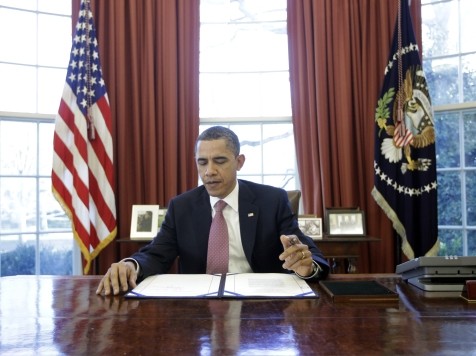
President Barack Obama issued a one-page memorandum on January 25, five days after the inauguration. The memo told the Director of National Intelligence (DNI) and Office of Personnel Management (OPM) to establish new mandates that would allow federal agencies to terminate employment of staffers without appeal if their work can be deemed as ‘national security sensitive.’
Thousands of federal positions would be negatively affected by the rule if it were to go into effect. The rule would encompass any jobs involving public safety or law enforcement duties. Anyone who works for an office that has an inspector general and individual who is a member of the federal law enforcement officers association would be affected by the proposed rule.
Whistle Blower Advocacy groups like the Washington D.C. based Government Accountability Project (GAP) say that that the Obama administration, who has prosecuted more federal employees under the World War I era espionage act for leaking information to the press, could use this rule to further intimidate federal workers from stepping forward with claims of misconduct in the government.
Anyone within the Department of Justice or U.S. Attorneys Office, as well as any jobs relevant to the nation’s borders, would be affected by the President’s memo. Any government employee who has direct involvement with diplomatic relations or negotiations would be included too.
The president’s memo was released one day after the U.S. Court of Appeals for the Federal Circuit vacated a decision (Berry v. Conyers) made by the court in August that gave the federal government the power to fire thousands of employees without cause or the ability to appeal. The full court will rehear the case of Berry v. Conyers later this year.
The Whistleblower Protection Enhancement Act (WPEA) passed Congress almost four months ago. The law, according to GAP was aimed at protecting federal employees from reprisal if they do not reveal misconduct first; reveal misconduct to fellow staffers or supervisors; reveal the consequences of a policy decision; or blowing the whistle on their employer as they carry out their daily tasks.
President Obama also issued a policy directive last November that created whistle blower rights for intelligence community workers who cooperate within institutional channels.
However, as questions surrounding President Obama’s national security policies began to peak, and his appointments for Secretary of Defense and CIA Chief were criticized, the White House smashed an iron fist on the possibility that government leakers could talk about the attack onthe U.S. Mission in Benghazi, Libya or the administration’s drone program.
“Over time the deference to national security has expanded, so it’s now subsuming and canceling out all of the other earlier transparency commitments, and this is a prime example of it,” said Devine.
In fact, as members of Congress are calling on Benghazi survivors to give their stories, if Obama’s new rule is ultimately instituted, these individuals could be fired immediately.
“[Benghazi Survivors] could be fired without explanation for cooperating with Congressional oversight on Benghazi, and they would lose their access to the whistle blower protection act to defend themselves,” said Devine.
The federal government could designate virtually any position in the government as being a “national security” job. If the proposed rule succeeds, the administration will replace the professional civil service system that’s been in effect since 1883 with a “national security spoils system,” as Devine calls it.
Senator Charles Grassley (R – IA), co – author of the WPEA legislation, told Bloomberg News that Obama “in many instances has sought to silence whistle-blowers.”

COMMENTS
Please let us know if you're having issues with commenting.